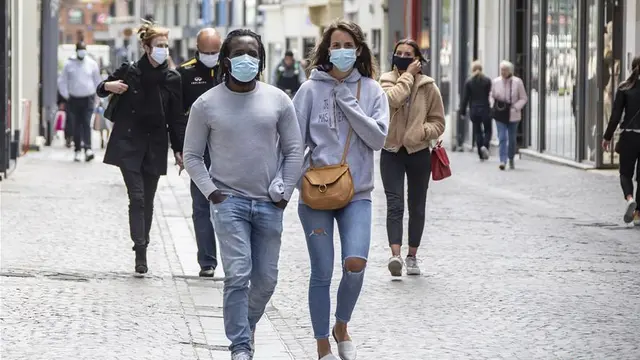The Algerian government relented late Wednesday on the demands of police officers who staged a sit- in near the Presidency headquarters in upper Algiers demanding better social and professional conditions.
The protesters gathered outside the Presidency Office in El Mouradia suburb in upper Algiers, calling for housing and transportation allowances and the recovery of overtime.
They also called for establishing their own trade union and chanted slogans urging the Chief of the General Department of National Security (DGSN) to quit.
Algerian Prime Minister Abdelmmalek Sellal rushed to the Presidency headquarters and held an urgent meeting with a representative delegation of the thousand angry police officers who were rallying there from early Wednesday.
Upon the end of the meeting, Sellal told a press conference that an inter-ministerial meeting will be held on Sunday in the presence Chief of General Department of National Security (DGSN), Major General Abdelghani Hamel and a representative delegation of the protesting police officers in a bid to implement the adopted decisions.
"We have discussed the problems of police, and yes the working conditions of police officers are very difficult," Sellal confirmed. Meanwhile, Abdelhalim Mourabiti, a senior official at the Interior Ministry, told reporters that Minister Tayeb Belaiz does not object the establishment of a police trade union. The protesters ended their three-day strike following the press conference.
On Tuesday, hundreds of police officers took to the streets of the capital and spent the night in front of the Government Office, demanding to meet with Prime Minister Abdelmalek Sellal.
On Wednesday, they marched to the Presidency headquarters. The prime minister was urged to head to the spot to meet representatives of the police officers.
Local media reported that similar protests of police officers have been staged in other provinces, including Oran in the west, and Constantine and Khenchla in the east.
This unprecedented police protests were initiated on Monday by anti-riot troops who called on the government to meet their key demands, including improving the troops' living conditions and establishing a union. The anti-riot troops were deployed to the province of Ghardaia, 600 km southeast of Algiers, 11 months ago to restore calm after scuffles erupted between two ethnic groups in the province.
On Tuesday, Interior Minister Tayeb Belaiz rushed to Ghardaia and met with representatives of the protesters, as he promised to take into consideration of their demands as soon as possible. Sellal confirmed also that anti riot troops in Ghardaia have resumed work.
Although Algeria was spared from the unrests of the Arab Spring, the national police was often on the front line to thwart peaceful marches and rallies of political and human rights activists demanding for a change.
Algerian police is also a key element in the fight against terrorism since early 90's. In 2011, the government announced a 50 percent wage hikes for police. The size of the national police has experienced substantial growth, up from 50,000 members in the 1990s to some 200,000 elements today, 10 percent of whom are females. Enditem
 简体中文
简体中文

